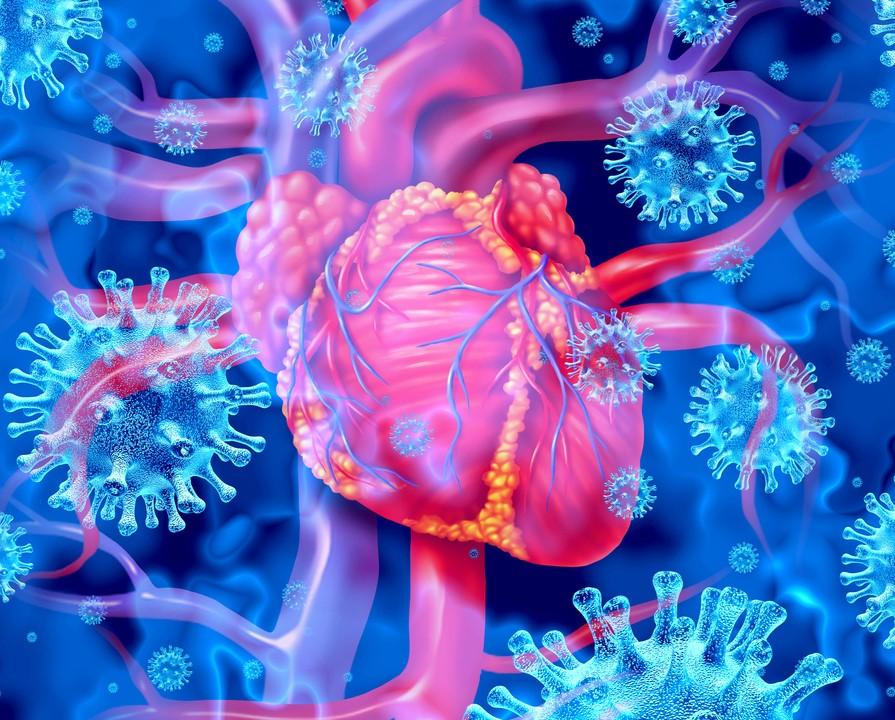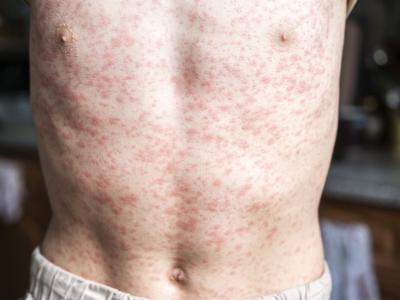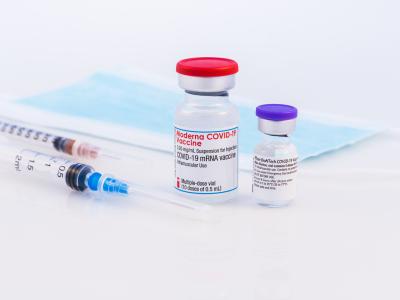Myocarditis or pericarditis are much more likely to follow infection with SARS-CoV2 compared with COVID-19 vaccinations, according to research published today in Morbidity and Mortality Weekly Report.
The study was based on electronic health records from 40 US health care systems from Jan 1, 2021, through Jan 31, 2022, and heart conditions following COVID-19 infections among stratified age groups (5 to 11, 12 to 17, 18 to 29, and ≥30 years). The rates were compared to documented cases of cardiac conditions following one or two doses of mRNA vaccines.
Myocarditis is inflammation of the heart muscle, and pericarditis is inflammation of the tissue that encases the heart.
Data support vaccination
"The incidence of cardiac outcomes after mRNA COVID-19 vaccination was highest for males aged 12–17 years after the second vaccine dose; however, within this demographic group, the risk for cardiac outcomes was 1.8–5.6 times as high after SARS-CoV-2 infection than after the second vaccine dose," the authors wrote.
For boys ages 5 to 11, the incidences of myocarditis and myocarditis or pericarditis were 12.6 to 17.6 cases per 100,000 after infection, 0 to 4 cases after the first vaccine dose, and 0 after the second dose.
The numbers shift substantially for males ages 12 to 17: In that group, the incidences of myocarditis and myocarditis or pericarditis were 50.1 to 64.9 cases per 100,000 after infection, 2.2 to 3.3 cases after the first vaccine dose, and 22.0 to 35.9 after the second dose.
Though cardiac complications following either natural infection or vaccination were rare, they were much more common in males compared to females, and in teens compared to older adults or younger children. The authors say the findings support the continued use of mRNA vaccinations.
The Centers for Disease Control and Infection (CDC) COVID Data Tracker shows 65.6% of Americans are fully vaccinated against COVID-19, 77% have received at least one dose of vaccine, and 44.9% of fully vaccinated Americans have received a booster dose.
US lawmakers eye $10 billion deal
The United States reported 46,425 new COVID-19 cases yesterday, and 755 deaths, according to the Johns Hopkins COVID-19 tracker.
The 7-day average of new daily cases is 29,672, with 686 daily deaths, according to the Washington Post tracker.
After this week's earlier warning from President Joe Biden that without additional funding the United States would be unable to pay for booster shots for all in the upcoming months, US lawmakers are closing in on a compromise deal that would provide $10 billion in funding for COVID-19 vaccines, tests, and treatments, the Associated Press reports. The amount is less than half of what the Biden administration requested in early March.
Research: Symptoms don't correlate with viral shedding
Today new research from a human challenge study out of Imperial College London shows COVID-19 symptoms don't correlate with viral shedding. Study results are published today in Nature Medicine.
This is the first and only human challenge trial studying COVID-19 transmission, and included 36 healthy young adults ages 18 to 30 who were exposed to the virus.
Eighteen participants in the trial caught COVID-19, but symptom severity— and even the absence of symptoms — did not correlate with how much virus each participant shed during the study.
Most participants who contracted the virus did so within 2 days of exposure, and viral shedding was highest on day 5. By that day, the virus was found most abundantly in the nose.
"Our study reveals some very interesting clinical insights, particularly around the short incubation period of the virus, extremely high viral shedding from the nose, as well as the utility of lateral flow tests, with potential implications for public health," said Christopher Chiu, PhD, a chief investigator on the trial in a press release.
All of the study participants who contracted COVID-19 recovered from mild illness.
Currently 1 in 13 people in the United Kingdom have COVID-19, the highest prevalence rate seen during the 2-year pandemic.
Shanghai continues lockdown
In China, Shanghai's lockdown will continue through the weekend, and there are media reports of medical emergencies in the city due to the overloaded healthcare system.
China recorded 7,229 cases today, 5,442 of them asymptomatic. Elsewhere in Asia, both Hong Kong and South Korea have tracked decreasing daily case counts. For the first time in weeks, South Korea's daily case counts have dropped below 300,000.




















